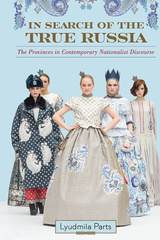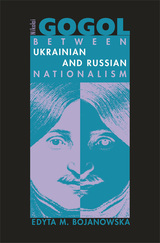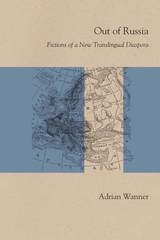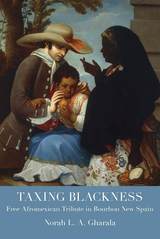
Surveying a largely unexplored body of Russian journalism, literature, and film from the late twentieth and early twenty-first centuries, Parts finds that the harshest portrayals of the provinces arise within "high" culture. Popular culture, however, has increasingly turned from the newly prosperous, multiethnic, and westernized Moscow to celebrate the hinterlands as repositories of national traditions and moral strength. This change, she argues, has directed debate about Russia's identity away from its loss of imperial might and global prestige and toward a hermetic national identity based on the opposition of "us vs. us" rather than "us vs. them." She offers an intriguing analysis of the contemporary debate over what it means to be Russian and where "true" Russians reside.

No other writer captured the fraught relations between Ukrainian and Russian nationalisms with as much complexity and lasting relevance as Nikolai Gogol. This pathbreaking book illuminates the deep cultural stakes of today’s geopolitical conflict.
The nineteenth-century author Nikolai Gogol occupies a key place in the Russian cultural pantheon as an ardent champion of Russian nationalism. Indeed, he created the nation’s most famous literary icon: Russia as a rushing carriage, full of elemental energy and limitless potential.
In a pathbreaking book, Edyta M. Bojanowska topples the foundations of this russocentric myth of the Ukrainian-born writer, a myth that has also dominated his Western image. She reveals Gogol’s creative engagement with Ukrainian nationalism and calls attention to the subversive irony and ambiguity in his writings on Russian themes. While in early writings Gogol endowed Ukraine with cultural wholeness and a heroic past, his Russia appears bleak and fractured. Russian readers resented this unflattering contrast and called upon him to produce a brighter vision of Russia. Gogol struggled to satisfy their demands but ultimately failed.
In exploring Gogol’s fluctuating nationalist commitments, this book traces the connections and tensions between the Russian and Ukrainian nationalist paradigms in his work, and situates both in the larger imperial context. In addition to radically new interpretations of Gogol’s texts, Bojanowska offers a comprehensive analysis of his reception by contemporaries.
Brilliantly conceived and masterfully argued, Edyta Bojanowska fundamentally changes our understanding of this beloved author and his place in Russian literature.


READERS
Browse our collection.
PUBLISHERS
See BiblioVault's publisher services.
STUDENT SERVICES
Files for college accessibility offices.
UChicago Accessibility Resources
home | accessibility | search | about | contact us
BiblioVault ® 2001 - 2025
The University of Chicago Press









